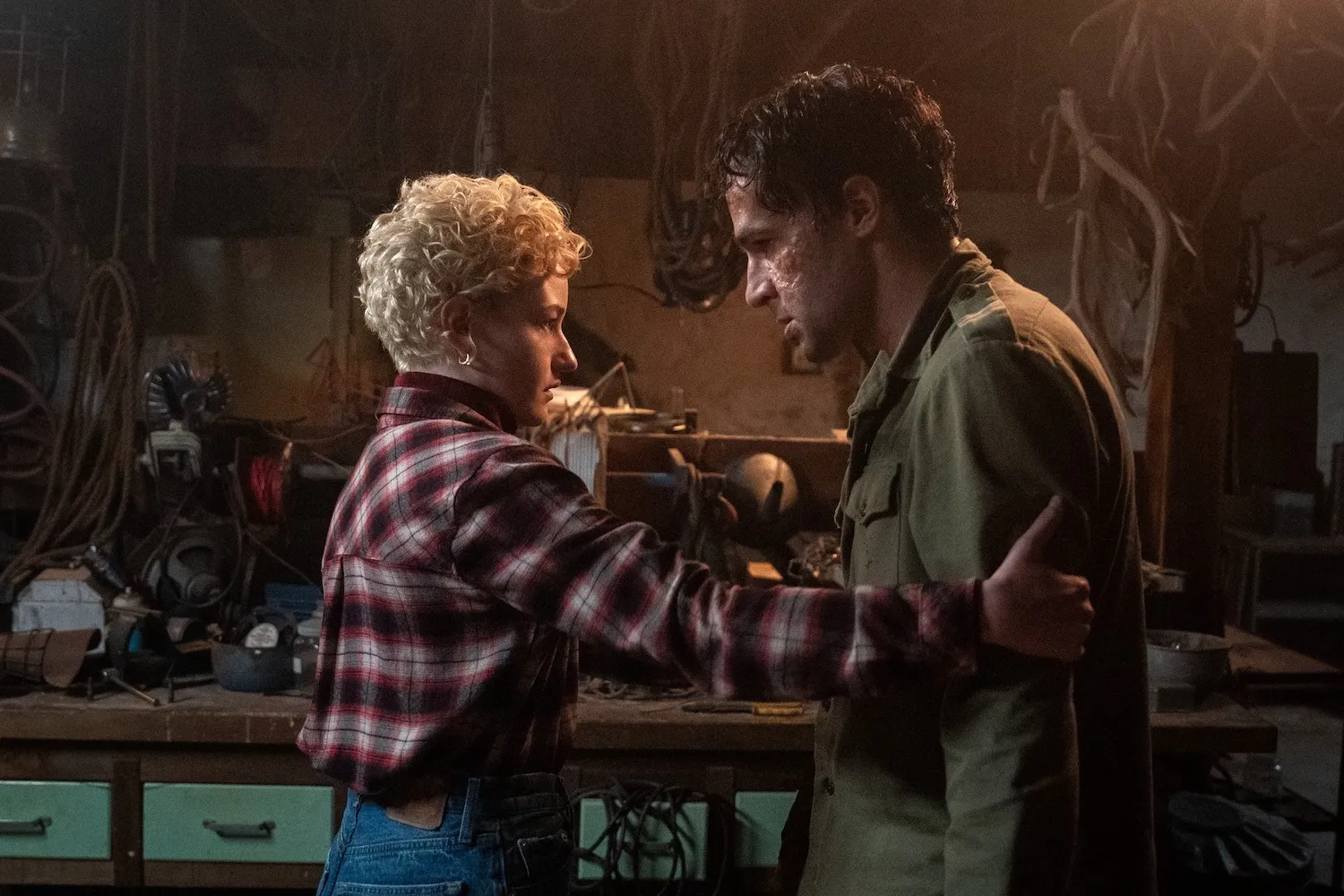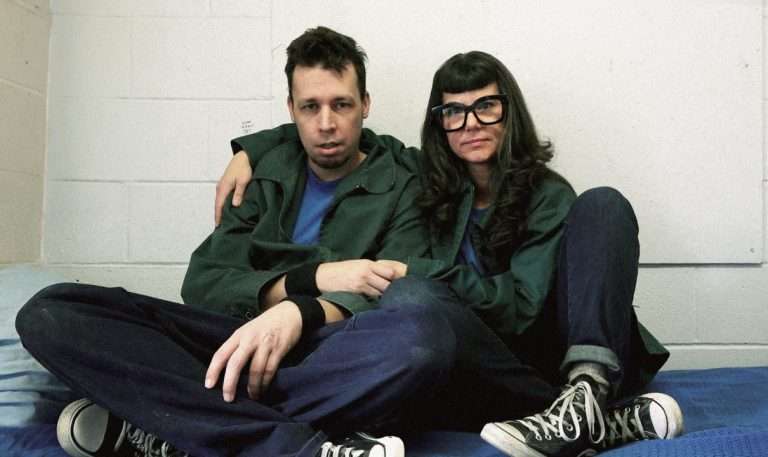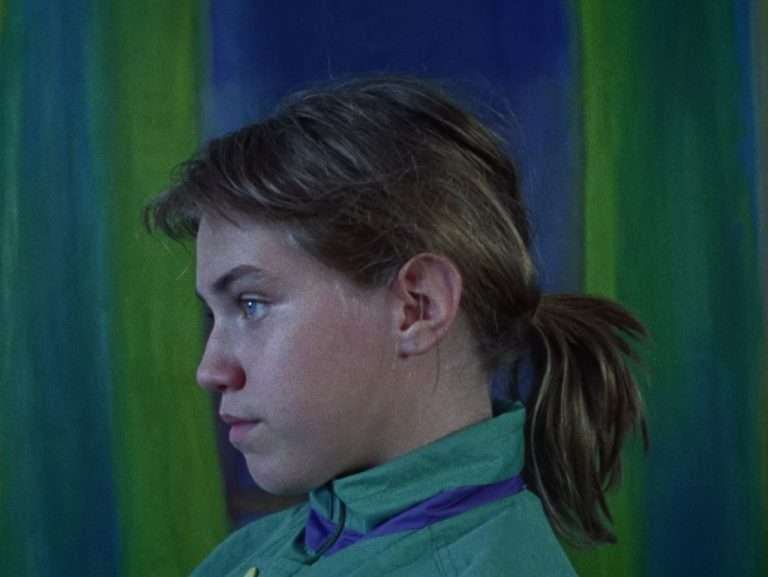Of all the attempts from Universal to revamp their classic creature features for new generations, the Wolf Man stands upright as one of the most compellingly tricky beasts to wrangle. Unlike other contenders like “Dracula” and “Frankenstein,” both entrenched in enduring pieces of 19th-century literature and subsequently retooled ad nauseam by a long string of auteur filmmakers, this creature remains firmly associated with the studio’s famed 1941 Lon Chaney, Jr. vehicle; say “werewolf,” and your imagination runs to any number of varying iterations of the classic beast, but say “Wolf Man” and you know exactly which hairy-faced, bipedal canine is creeping through the fog.
Given the past failed attempts to reintroduce the classic murderer’s row of monsters to the social media era—Tom Cruise still has nightmares in the shape of the gaping void that is the Dark Universe logo—what “Wolf Man” would need to succeed was some fresh blood to herald the latest change at the full moon. And who better to take on the hunt than Leigh Whannell, the Australian wonder boy who made the best “Venom” film of 2018 and retooled “The Invisible Man” into a parallel for domestic violence?
If Whannell’s stab at “The Invisible Man” re-envisioned its classic shit-disturber as a genuine terror of manipulative gaslighting, then his version of “Wolf Man,” if it doesn’t become clear by its final few exchanges of horrifically sterile dialogue, functions as a metaphor for generational trauma. That trauma comes in the form of Blake Lovell (Christopher Abbott), a stay-at-home father who cares tenderly for his daughter Ginger (Matilda Firth) while his wife Charlotte (Julia Garner) brings home the bread as a reputed journalist.
When Blake’s militarily stringent and long-disappeared father is finally declared legally dead, he must make the trek to Oregon to deal with the property of the man who instilled him with the conflicting (and barely explored in the protracted flashback that opens the film) ideals of hunter-gatherer masculinity. Bringing his family along in the hopes that the experience with rekindle a dwindling relationship, Blake’s childhood home brings with it an unseemly welcoming party, in the form of a mysterious beast that infects him with a slowly debilitating and (in more ways than one) dehumanizing disease.
Whannell and co-writer Corbett Tuck appear, in the former’s continued explorations of toxic masculinity, to be using the titular beast as a metaphor for the destructive capacity of forcing traditional male roles out of a sense of insecurity; through the eternal grace of Abbott’s earnest line delivery, Blake’s gentler paternal instincts are never looked down upon by the film, but are clearly acting in opposition to his own childhood nurturing which amounted to a rifle shoved in his hand. In that sense, the impending slow transformation seems to act as something of a cosmic punishment for every subsequent faux-macho move Blake makes to overcorrect what should mostly amount to slight ease of the sheltered attitude he has towards his young daughter.
That’s, really, just about as thematically dense as “Wolf Man” will get, but it doesn’t really matter, because once you get past the intended depth of Whannell’s approach, what the film has to offer as a monster showcase does little to enrich that perspective, nor compliment it as a horror feature. If most “it’s a metaphor for trauma!” horror films are derided by classic horror fans for skimping out on the actual scares in favor of slow-burning characterization, then “Wolf Man” digs its own hole even deeper by sacrificing the scares (or any momentum whatsoever) for the sake of the most surface-level, bullet-point analysis of the central dynamic. (Whannell claiming to have hosted a “Full Moon Film Club” for his crew, in which screenings of “Amour” and “Blue Valentine” were held among “The Fly” and “The Shining,” is already a solid early contender for the funniest statement of 2025.)
When Garner’s Charlotte (a truly thankless role given her and her costar’s proven capacity to pull endless depths of internal struggle out of a single stare) begins to proclaim that her husband is turning into something she doesn’t recognize, we’re really left to take her at her word. Whannell, in his horrid sense of pacing for a narrative which takes place almost entirely across a single night, does virtually nothing to show Blake’s transformation beyond an increasingly catatonic physicality; as soon as Blake loses his vocals, Charlotte begins to overcompensate, right down to telling Ginger—and, by proxy, us—the exact extent of the trauma metaphor Whannell and Tuck want to get across.
Also, Read – 50 Most Anticipated Movies of 2025
“Wolf Man” is not a failure because of its superficial interest in a thematic framework that Ari Aster would probably jot down on a piece of toilet paper on his way out of a repertory screening of “Ginger Snaps.” The film is a failure because, for a film called “Wolf Man”—in which that title is meant to be taken, at least to some degree, literally—Leigh Whannell drowns his efforts in nonexistent tension, underlit compositions and lazy character design; the eventual final form of our titular beast looks less like a man-turned-wolf or a wolf-turned-man, and more like if Gollum dislocated his jaw, hit the gym a few times a week and got a botched hair transplant.
From the moment Blake steps out of his New York apartment, he’s just begging to be put out of his misery (one sympathizes…), but in Whannell’s revamping of the Wolf Man saga, there are no silver bullets to be found.




![Cat Sticks [2019]: ‘KIFF’ Review – A Black and White Exercise in Excellence](https://79468c92.delivery.rocketcdn.me/wp-content/uploads/2019/11/Cat-Sticks-Biplab.jpg)

![Tramps [2017]: Too Broke To Love](https://79468c92.delivery.rocketcdn.me/wp-content/uploads/2017/04/Tramps-768x432.jpg)


![Bare Trees in the Mist [2020]: ‘DIFF’ Short Film Review – The wafer-thin weight of gratitude](https://79468c92.delivery.rocketcdn.me/wp-content/uploads/2020/10/Bare-Trees-in-the-Mist-1-highonfilms-768x428.jpg)